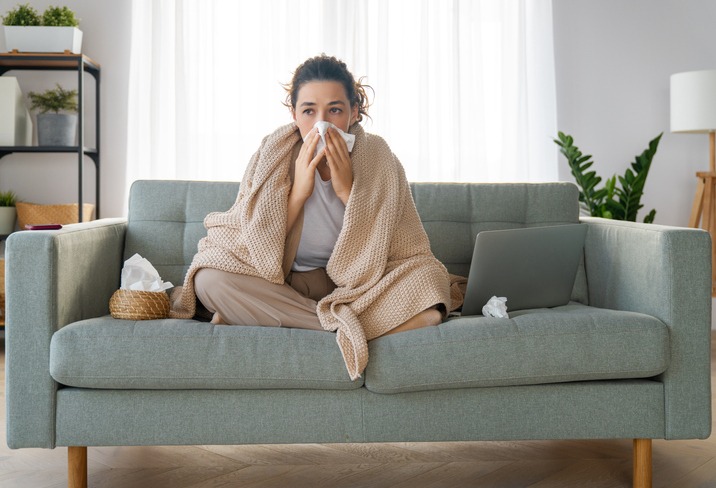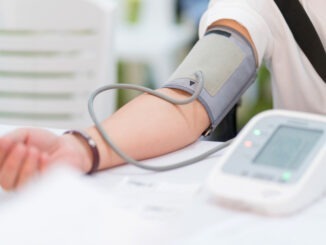
As reported by The Times, flu and COVID patients could be treated at home this winter on virtual wards after the treatments watchdog gave the green light
The National Institute for Health and Care Excellence (Nice) said that hospital at home services could be used for patients with acute respiratory infections, in an attempt to free up hospital beds and save the NHS money.
Patients on virtual wards typically have vital statistics such as their temperature, heart rate, breathing, blood pressure and oxygen levels measured using wearable devices. They communicate with clinicians using an app or website, with a telephone support line. Doctors and nurses use a digital platform to monitor them remotely.
In new draft guidance, Nice said that the platforms could be used more widely in England for people over the age of 16 with acute respiratory infections.
Mark Chapman, interim director of medical technology and digital evaluation at Nice, said: “The NHS is under pressure, and giving people with an acute respiratory infection the chance to be monitored from the safety of their own home or care home can help manage capacity in hospitals.
“Evidence shows virtual wards are safe and can be an option for those who are comfortable using technology to have their condition monitored away from a hospital ward.”
Evidence presented to Nice found that there were similar outcomes for patients treated in a hospital compared with those at home.
There are a record 7.6 million patients on the NHS waiting list. Health leaders have said they are nervous about the coming winter, which could have a bad flu season amid continuing strikes by doctors.
Nice said that using the technology could also save money. Analysis by the public body found that virtual wards saved about £872 per person compared with inpatient care, and £115 per person compared with home care without the use of technology.
The government had pledged to create an extra 10,000 virtual ward beds before the winter under its urgent and emergency care recovery plan, as well as 5,000 extra hospital beds.
Helen Whately, the health minister, said that expanding the use of virtual wards to support those with acute respiratory infections “will give more patients the option of recovering at home. At the same time this frees up beds for people who need to be in hospital.”
Saffron Cordery, deputy chief executive of NHS Providers, which represents hospitals, said that virtual wards could “play a key role” in easing pressure on the health service, but more investment could be needed.
A consultation on Nice’s recommendation is under way and will run until September 1.
Professor Sir Stephen Powis, national medical director of NHS England, said: “Virtual wards have fast become one of the NHS’s most important innovations and it is encouraging that Nice recognises these benefits and is now recommending their use for acute respiratory infections.
“They can also make a real difference ahead of winter when we know viruses can pile considerable pressure onto NHS services.”



Be the first to comment